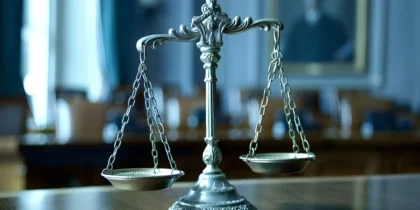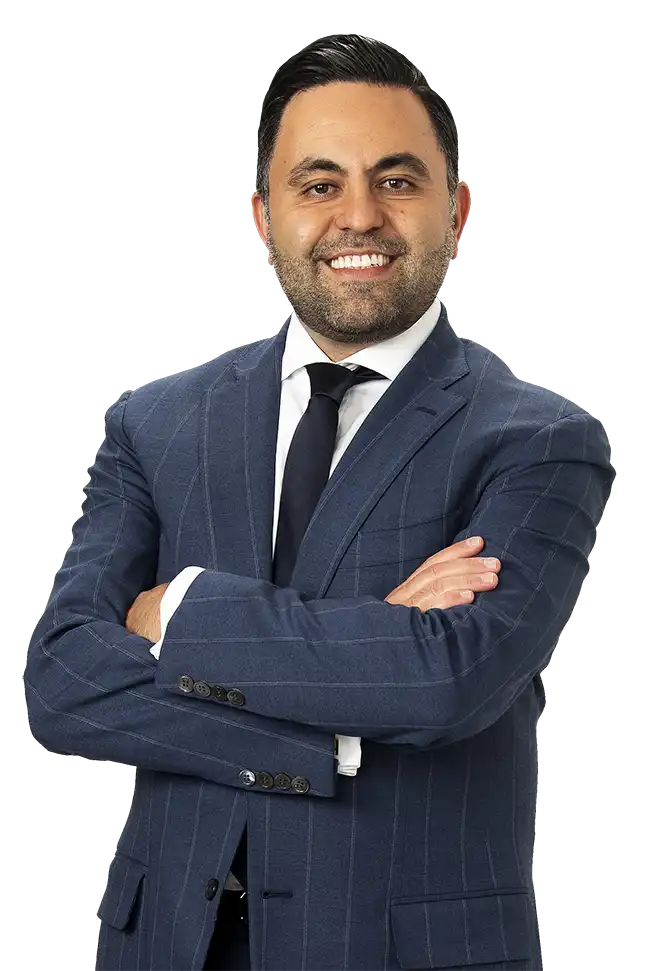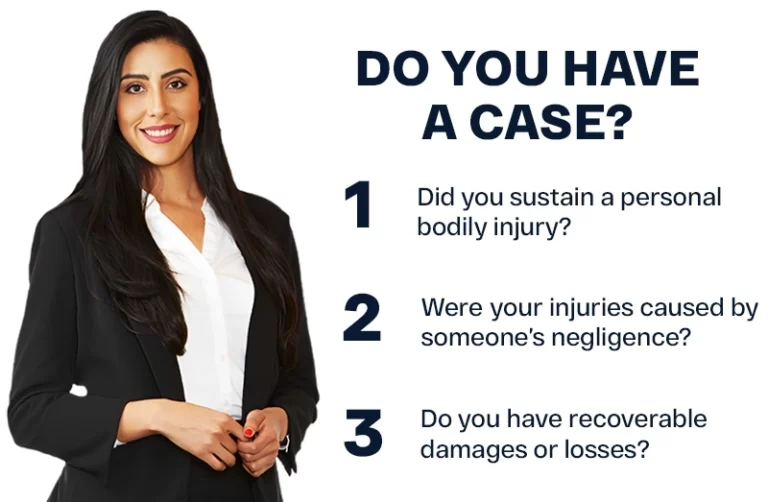Table of Contents
Have you ever wondered about the meaning of the title “Esquire” or its abbreviated form “Esq.” often seen after lawyers’ names? This prestigious title holds historical significance and carries specific connotations within the legal profession. It is commonly used in the United States to denote a legal professional. Let’s explore Esquire’s history and modern-day use in the American legal system.
What Does Esquire (Esq.) Mean In Law And Why Do Attorneys Use It?
The term “Esquire” traces its roots back to medieval England. Initially, it was a title given to knights and landowners, signifying a position of social standing. People used it to describe men who held positions of influence and responsibility, including lawyers, particularly those serving in the royal household or those aspiring to knighthood. Over time, the association with legal expertise became more prominent. Today, people primarily use it as a courtesy title for lawyers in the United States and other English-speaking countries.
In the U.S., “Esquire” is a courtesy title that indicates that someone has a license to practice law. This means they’ve passed the bar exam in a specific state and are members of that state’s bar association. So, while it’s not an official qualification like a J.D. (Juris Doctor) degree, it signifies that the lawyer has completed the necessary steps to represent clients in court.
An attorney can use the title regardless of what type of law they practice. That means personal injury attorneys, family lawyers, employment lawyers, litigation attorneys, workers’ compensation lawyers, and other attorneys can all append “Esq.” to their names.
Appending “Esq.” to one’s name signifies that the individual is qualified to practice law. This includes representing clients in court, creating legal documents, and offering legal counsel. They can work in various legal settings, such as private firms, government offices, or corporations.
It’s important to note that “Esquire” is a courtesy title rather than an official legal designation. While it indicates legal qualifications, it doesn’t confer special legal powers or responsibilities.
Why Do Lawyers Use It?
There are a few reasons why attorneys, including personal injury lawyers, might choose to use “Esq.”:
- Formal Recognition — It adds a touch of formality to legal communication, particularly in written correspondence or business cards.
- Credibility — It is a formal professional designation indicating an individual has met the requirements to practice law.
- Tradition — The use of “Esquire” has a long history in the legal profession, dating back to when it denoted a higher social rank.
While “Esquire” is a recognized title, attorneys are not required to use it. In today’s legal landscape, some lawyers might choose a more informal approach, especially in electronic communication.
The Impact Of The “Esquire” Title On An Attorney’s Reputation And Practice
The Esquire title can significantly influence a lawyer’s reputation and practice. For those unfamiliar with the legal field, “Esquire” often conveys an air of expertise and professionalism, potentially enhancing an attorney’s reputation. Some lawyers strategically employ the title as a marketing tool to differentiate themselves from competitors and attract clients.
However, the effectiveness of the Esquire title is not universal. While it can bolster an attorney’s perceived credibility, others might view its use as pretentious or overly formal. Ultimately, the impact of using “Esq.” depends on various factors, including the attorney’s target audience, personal branding strategy, and the overall tone of the legal practice.
Who Gets The Title Esquire?
In the U.S., those sworn in as attorneys for personal injury, family law, estate planning, and other legal specialty areas have the right to use “Esq.” Historically, people may have given the title to justices of the peace, magistrates, judges, and other state officers. Higher naval and military officers may also be addressed with “esquire” in their patents and commissions.
However, in modern usage, particularly in the United States, only licensed lawyers almost exclusively use the title Esquire. It denotes their professional status and their right to practice law.
Acquiring The Right To Use The Esquire Title
The title “Esquire” (Esq.) is a professional designation traditionally used by licensed attorneys in the United States. It signifies that an individual has met the qualifications to practice law and belongs to the legal profession. Unlike academic titles earned through degrees, “Esq.” applies to those formally admitted to a state bar.
To obtain the right to use “Esq.”, an individual must first become a licensed attorney by meeting the following requirements:
Step One: Obtain An Undergraduate Degree
There is no specific undergraduate degree required for law school. However, some degrees, such as English, public speaking, philosophy, and political science, better prepare individuals for the study of law.
Although the specific degree doesn’t matter, maintaining high grades and participating in extracurricular activities are crucial for increasing the chances of earning the “Esquire” title.
Step Two: Take The LSAT
Aspiring lawyers must pass the Law School Admission Test (LSAT) before applying to law schools accredited by the American Bar Association (ABA). It’s a rigorous, skill-based exam that tests their aptitude for the legal field. The LSAT has three scored sections: reading comprehension, logic games, and logic reasoning.
LSAT scores range from 120 to 180, with 120 being the lowest. Many aim for at least 150, but a score of 160 is better for top-ranking schools. The top 10 law schools prefer a score of 170 or more. However, admission is not based solely on the LSAT score, so a slightly lower score can still be competitive.
Step Three: Get Qualifications To Take The Bar
Law students must further their education by either of the two options, depending on where they want to take the bar:
- Complete Law School — The traditional route to becoming an attorney is through law school. Juris Doctor (J.D.) programs offer a comprehensive legal education covering a broad spectrum of legal subjects. Students can tailor their studies to specific areas of interest, such as corporate law, criminal law, intellectual property, or environmental law. Upon graduation, they must pass the bar exam in the jurisdiction where they intend to practice.
- Take an Apprenticeship Program — While less common, some jurisdictions allow individuals to become attorneys through apprenticeship or law clerkship programs.
These programs typically involve working under the supervision of an experienced attorney for a specified period. The requirements and rigor of these programs vary significantly by state. It’s important to note that completing a law school program is still the preferred path for most aspiring lawyers due to the depth and breadth of legal knowledge it provides.
While the apprenticeship route may be less structured, it offers practical experience and can appeal to individuals who prefer hands-on learning. However, it’s crucial to research the specific requirements of the jurisdiction where one intends to practice.
For example, the State Bar of California does not require a J.D. degree. Kim Kardashian is a notable example of someone who has taken this route.
Step Four: Pass The Bar Exam
The LSAT remains standardized for all test-takers, but the bar exam varies by jurisdiction. The state’s Bar Association governs the regulation and licensing of attorneys, including holding examinations to determine if someone has the necessary knowledge to practice law in their jurisdiction.
Once someone passes the bar exam and the State Bar admits them, they can use the term “Esq.”
How To Use “Esq.” Correctly
There are no hard and fast rules when using “Esquire.” Still, there are a few socially accepted practices and guidelines to follow, whether in official or casual settings.
Using “Esquire” In Verbal Communication
The term “Esquire” can be used in verbal communications as part of an introduction. For example, we can say, “This is John Doe, Esquire.” This helps establish their profession during conversations. The title often bears the same meaning as “Attorney John Doe.” Still, this is not common practice.
However, it is essential to note that addressing oneself as “Esquire” in a conversation is traditionally considered improper.
Using “Esquire” In Written Communication
People often use “Esquire” in written communication and almost always abbreviate it after a name. They address or refer to an attorney in emails, letters, documents, articles, and other written media.
Attorneys can also use the title to refer to opposing counsel as a sign of respect and formality. When drafting orders, a judge can add the title after a lawyer’s name.
Some attorneys would append the abbreviation to their names. When you see the lawyer’s title at the end of an email, you communicate directly with them. However, this convention is considered outdated and even pretentious in formal legal documents like motions or correspondence. When an honorific is necessary, the more appropriate designation is “Attorney at Law.”
Addressing A Couple
When writing to a lawyer and their spouse, you should not use “Esq.” Instead, use the standard courtesy titles. For example:
- Mr. and Mrs. John Doe
- Mr. John Doe and Ms. Jane Doe
Using “Esq.” With Other Prefixes And Suffixes
When addressing someone formally, use only one title.
- Avoid Combining Titles — Don’t use “Mr.” and “Esq.” together. It’s either “Mr. John Doe” or “John Doe, Esq.”
- Prioritize “Esq.” — If someone has an “Esq.” after their name, don’t use a title like “Mr.” or “Ms.” before it.
- Limit To One Post-Nominal — Only one title or abbreviation should follow a name. For example, “John Doe, Esq., J.D.” is incorrect. Choose either “Esq.” or “J.D.”
In essence, keep it simple. Use either a courtesy title (Mr., Ms., Dr., etc.) or a professional designation (Esq., J.D., Ph.D., etc.), but not both.
Where You Might See “Esquire” Used In American Legal Settings
“Esq.” or Esquire can be present in various formal and informal contexts. Some examples are:
- At professional gatherings, legal conferences, and other events, when someone introduces an attorney.
- In news articles, interviews, or television shows.
- In ads or signage.
- In official court documents, contracts, and other legal filings.
- In articles, books, journals, and other academic publications.
- On letterheads, email signatures, and business cards.
You would also frequently encounter the term when looking for an attorney. Law firm websites and online directories may list attorneys with the “Esq.” appended to their names. At Arash Law, for instance, we use the title when referring to our personal injury attorneys.
Other Abbreviations Used In Law
Besides “Attorney (Atty.)” and “Esquire (Esq.),” you may encounter other abbreviations in the legal field, such as:
- Juris Doctor (J.D.) — This abbreviation after a name demonstrates that an individual has graduated from law school.
- Legum Baccalaureus (LL.B.) — A Bachelor of Laws degree awarded in many countries outside the United States. While historically offered in the U.S., Juris Doctor (J.D.) has replaced it as the standard law degree. In some jurisdictions, LL.B. holders must complete additional qualifications to practice law.
- Legum Or Legum Magister (LL.M.) — This suffix is for individuals who have earned a Master of Laws degree by advancing their legal studies in a specific area.
- Juridicae Scientiae Doctor (J.S.D.) — Those who have earned a degree in Doctor of Science of Law or a Ph.D. in law can use the “J.S.D.” post-nominal/after their name.
- Justice Of The Peace (JP) — This title refers to judicial officers who assist district court judges, preside over small claims courts, and perform other judicial duties. The more commonly used term in the United States is “Magistrate Judge.”
- Professional Association (P.A.) — Often seen after the name of a law firm, this title means that a group of lawyers has created a separate entity for their professional services. A P.A. is a business structure that may offer certain liability protections and organizational benefits, though specific advantages depend on individual circumstances and applicable law.
Lawyers and attorneys may use other post-nominals in addition to their law degrees. For example, an individual who has acquired a Master of Business Administration (M.B.A.) degree can use both “J.D.” and “M.B.A.” after their name, like so: “Jane Doe, J.D., M.B.A.”
Frequently Asked Questions
Do you have questions about the legal title “Esquire” (Esq.)? You’re not alone! This section covers some common questions about its proper use. Whether you’re curious who can use it, how it differs from other titles, or its relevance today, we’ve got you covered.
Is Esquire Still Used Today?
The title is still used today, especially in formal or professional correspondence. Many law firms address their attorneys with the title “Esq.” Moreover, many people use it to pay respect to a lawyer when writing to them.
Is There A Difference Between Esquire Vs. Attorney?
Esquire is used synonymously with attorney, but they are not technically identical. For one, it is not a standalone term to describe one’s profession but rather an honorific used by others to pay respect to an attorney. For instance, you would not refer to someone as an “esquire lawyer” or “esquire attorney.”
Meanwhile, the word attorney or lawyer refers directly to someone in the legal profession. When referring to someone’s profession, use “attorney” instead of “esquire.”
While both terms can refer to someone allowed to practice law, Esquire is not the same as attorney in this linguistic sense.
Can I Add Esquire To My Name?
You can add “Esq.” to your name if you’re licensed to practice law. This applies to all attorneys, regardless of their practice area. You can’t use the title if you are not a lawyer and have not passed the bar exam.
Can Law Students Use The Title Esquire?
No, law students cannot use the title “Esquire.” This title is only for individuals who have graduated from law school and passed the bar exam, officially becoming licensed attorneys. Using the title “Esquire” before being admitted to the bar is considered inappropriate and misleading. While the “J.D.” degree indicates completion of law school, it does not authorize law practice. Only after passing the bar exam can an attorney rightfully use the “Esquire” title.
Can Lawyers Use The Term “Esquire” After Retirement?
While specific regulations regarding the post-retirement use of “Esquire” may vary by jurisdiction, many attorneys continue to use the title as a professional designation. They do this as a constant reminder of their commitment to their profession. For instance, a lawyer who has handled personal injury claims might still use it to symbolize their years of representing and helping victims.
However, retired attorneys cannot use it to promote a business and represent themselves as practicing lawyers.
Is “Esquire” Used For Female Lawyers?
Yes, women can use the title “Esquire.” While historically, the title was predominantly associated with male attorneys, contemporary usage recognizes women’s equality in the legal profession. Today, “Esquire” is gender-neutral and can be used for both male and female attorneys. This shift reflects the progress made in gender equality and the breaking down of traditional barriers.
For instance, our law firm, Arash Law, proudly uses “Esq.” for both male and female attorneys, affirming our commitment to gender parity. It’s essential to dispel the outdated notion that “Esquire” is exclusively a male title. Such a belief perpetuates harmful stereotypes and undermines the achievements of women in law.
Female attorneys use ” Esquire ” to symbolize progress and equality, and supporting this inclusive practice is crucial.
Should I Put Esq. After My Name?
Provided that you are an attorney, whether or not you should put the Esq. suffix after your name depends on your purpose and the context; most attorneys leave it out in informal correspondence, such as when communicating with family and friends. It can be helpful in official documents and professional correspondence, especially if you want to clarify that you are an attorney. Many use it to signify to the other party that they are reaching out as a lawyer.
Alternatively, you can use the more widely accepted title “Attorney at Law” to indicate your professional status.
What Is The Difference Between A J.D. And An Esq., And How Do They Relate To Being A Lawyer?
A J.D. is a Juris Doctor degree, indicating completion of law school. An Esq. is a title used after a lawyer’s name, signifying they’ve passed the bar exam and are authorized to practice law. While all attorneys have J.D. degrees, not everyone with a J.D. is an attorney. To avoid confusion, ” J.D.” is often preferred to refer to someone who has completed law school but isn’t yet licensed, and “Esq.” for those practicing attorneys.
Can Anyone Involved In Law-Related Work Use Esquire?
Not everyone in the legal field can ethically use the title Esquire. Only those admitted to the bar and licensed attorneys can do so.
Today, unlicensed professionals perform many law-related tasks, such as paralegals, legal assistants, and law clerks. These professionals can provide valuable support and assistance in legal matters, but do not have the authority to represent clients in court or provide legal advice in the capacity that a licensed attorney can. They cannot use the “Esquire” title.
Is Using The Term “Esq.” Without Being A Lawyer Considered Unauthorized Practice Of The Law?
Depending on the jurisdiction and circumstances, using the title “Esquire” without being a licensed attorney may violate state laws regarding the unauthorized practice of law. California law explicitly prohibits people from pretending to be lawyers. This means you can’t use “Esquire” if you don’t have a law license. Otherwise, it can be considered a violation of the CA Business & Professions Code 6125 and 6126.
According to the definitions provided in these sections, unauthorized practice of the law can mean holding yourself out as practicing law or engaging in specific legal activities without being an active member of the state bar. This includes:
- Representing clients in court.
- Providing legal advice.
- Preparing legal documentation.
- Advertising yourself as someone who’s practicing law.
In other words, using “Esq.” to engage in these practices without being a licensed attorney may constitute unauthorized practice of law and could result in legal consequences under California law.
Can An Attorney Use The Suffix “Esq.” When Not Acting In A Legal Capacity?
Attaching “Esq.” to an attorney’s name isn’t illegal, even when they’re acting in a non-legal capacity. It can show that someone is a lawyer, but it doesn’t mean they’re working as one now.
Is It Pretentious To Use Esquire?
It depends on the context and who is using the term. Many consider using Esquire to refer to oneself as pretentious, such as introducing oneself as “John Doe, Esquire.” In such cases, it may be more appropriate to use “attorney,” which would convey the same meaning.
Some also consider it pretentious to use “Esq.” on your letterheads, business cards, and similar materials. Still, many attorneys use it in these contexts to appear more professional and to clear up any confusion.
On the other hand, there are no concerns if someone else is using the term to address or refer to an attorney.
Should I Add “Esq.” To My Signature?
Adding “Esq.” to your signature is generally frowned upon. People may see it as simply a way to boast of one’s professional status, and it’s unnecessary in most cases. However, there are specific contexts where it might be beneficial. For instance, female lawyers add “Esq.” to their names to show they are not assistants and fight stereotypes.
Some people also use “Esquire” to enhance their professional image when sending a formal letter. Even if they are not acting as attorneys, the title highlights their legal qualifications, which may be beneficial.
Does Esquire Mean You Passed The Bar?
Yes, having “Esq.” to one’s name generally means that the person has passed the bar. However, there is currently no regulation over the use of the title Esquire. Someone could use it without facing legal repercussions, except in one state.
It only becomes illegal if the person is misrepresenting themselves, such as using the term to make people believe they’re practicing law when they’re not licensed.
Can A Lawyer Without “The Esquire” Title Represent Me In Court?
In court and other legal proceedings, an attorney, including a personal injury lawyer, who is not a state bar member, cannot represent clients. Otherwise, whether or not a lawyer uses the title “Esquire” has no bearing on their ability to represent you in court. The crucial factor is whether they hold a license to practice law in the jurisdiction where your case goes to trial.
For an individual to practice law, they must graduate from law school, pass the bar exam, and gain admission to the state bar. The “Esquire” title is a courtesy title indicating someone has met these requirements. It’s not a mandatory part of a lawyer’s credentials.
Therefore, when choosing an attorney, such as a personal injury lawyer, focus on their experience, qualifications, and the state where they are licensed to practice rather than their use of the “Esquire” title.
Do You Need An Attorney With An Esquire Title?
Many attorneys and law firms don’t use the title Esquire, so it’s irrelevant. The absence of the “Esq.” in someone’s name does not necessarily mean that they are not a qualified attorney. It applies to all practicing attorneys by default, but its use is optional.
Conversely, the presence of the Esq. suffix does not automatically confirm that someone is licensed to practice law or is currently practicing. For example, a personal injury lawyer might still use the title, and some individuals may misuse it to misrepresent their qualifications. As such, you should always verify an attorney’s credentials and licenses.
Most states have an easily accessible list of bar members. In California, for example, you can use the online directory of the State Bar of California to search by surname or bar number. To confirm an attorney’s status in another state, call or email their local bar association accordingly.
Is “Esq.” Important When Choosing An Attorney?
The Esquire title does not represent an attorney’s knowledge and experience. When choosing legal professionals, such as lawyers for personal injury cases, you should consider other factors beyond their use of the “Esq.” suffix and their license. Specialization is significant. For example, if you have had an accident and want to pursue compensation from the person responsible, you need a personal injury lawyer. Meanwhile, if you sustain a work injury, you should consult a workers’ compensation attorney.
You must also consider the attorney’s track record, reputation, and approach to similar cases. It’s highly advisable to schedule a free consultation with a lawyer, where you can also learn more about their communication style and payment arrangement. Check whether they offer a contingency fee option, hourly billing, or a fixed rate.
Hiring a skilled personal injury lawyer can help you better understand your case, legal options, deadlines, court requirements, and the overall legal process. They can help mitigate your risks while working to protect your legal interests. Additionally, injury lawyers can handle the legal process while you focus on healing from your injuries. The Esquire title doesn’t matter as much as finding the right attorney.
Arash Khorsandi, Esq. And The Arash Law Team At Your Service
Arash Law, led by Arash Khorsandi, Esq., is an injury law firm dedicated to serving its clients. With a deep-rooted commitment to justice, our team of personal injury attorneys provides legal representation focused on the needs and objectives of our clients. Our personal injury lawyers are methodological in our approach to protecting the interests of our clients.
The firm handles personal injury claims arising from car accidents, truck accidents, rideshare accidents, and other traffic accidents. We also deal with slip-and-fall incidents, premises liability, product liability, wrongful deaths, and numerous accident-injury cases. Our team of accident lawyers dedicates itself to protecting the rights of injured victims and pursuing compensation.
Having represented numerous clients, we offer comprehensive legal services, from initial case evaluation to negotiation and litigation. Past results do not guarantee future outcomes. Our professional, client-focused perspective guides our approach to every case we handle in the personal injury field.
If you have suffered an injury from an accident, you may need the assistance of personal injury lawyers. Call us at (888) 488-1391 to set a free initial consultation. Our experienced attorneys are ready to help.











